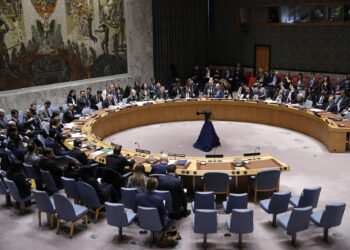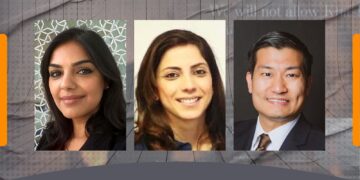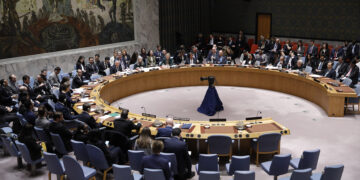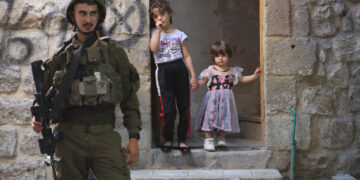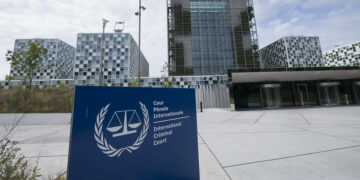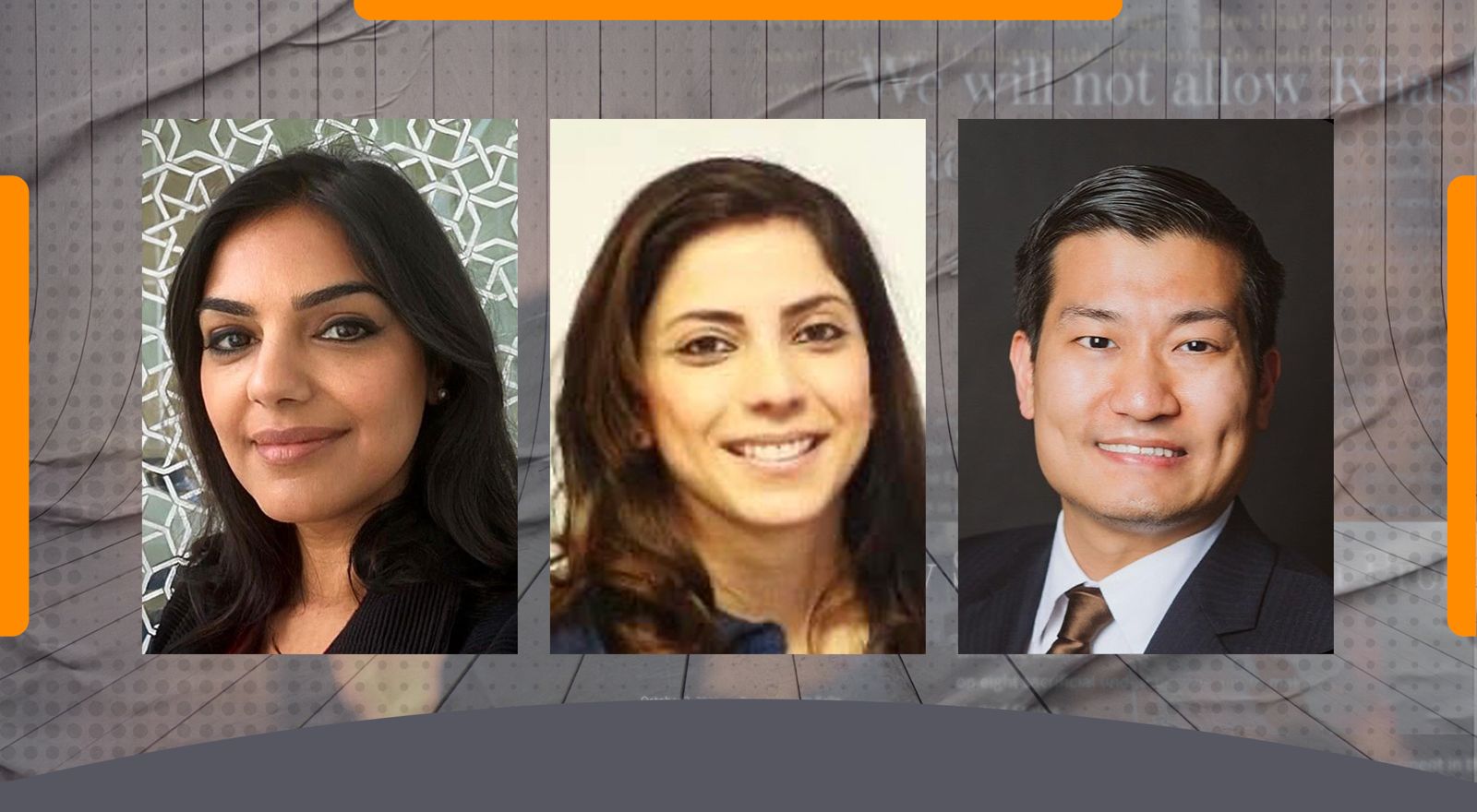51 of 69 Detainees Have Finished Serving their Sentences but Remain Imprisoned
(Washington, D.C. June 29, 2023) – The United Arab Emirates (UAE) should release all political prisoners held in the country, including the "UAE 94," and hold accountable government officials involved in their torture, unfair trials, and abhorrent detention conditions, said Democracy for the Arab World Now (DAWN), on the tenth anniversary of the sentencing of 69 of the 94 activists.
One decade since popular calls for democratic reforms in the country, the UAE remains an absolute dictatorship led by a cabal of unelected, self-designated "emirs."
"The trial and sentencing of 'UAE 94' stands out as a watershed moment for the mass repression that UAE authorities unleashed to counter calls for democracy and reform during the 'Arab Spring'," said Sarah Leah Whitson, DAWN's Executive Director. "It should be clear to all that when the US declares its partnership and support for the UAE, it is declaring its partnership and support for an intolerant, repressive dictatorship that abuses its own citizens."
The "UAE 94" refers to a group of 94 individuals linked to al-Islah, an Emirati civil society organization officially founded in 1974. The UAE authorities accused the group of attempting to overthrow the government because they advocated for democratic reforms during the "Arab Spring." The Union Supreme Court in Abu Dhabi sentenced 69 of the 94 men and women on July 2, 2013 to up to 15 years in prison for their peaceful activism. The UAE authorities continued their crackdown after sentencing the 69 individuals, and on March 20, 2017, they arrested and later sentenced prominent human rights defender Ahmad Mansoor to 10 years in prison.
At least 51 of the 69 individuals have finished serving their sentences in UAE prisons, including for over four years, but the authorities refuse to release them. UAE authorities justify their ongoing detention by citing the country's "counterterrorism" law, which allows prisoners to be imprisoned for "counseling" (Munasaha) after they finish serving their sentences. Judges can indefinitely extend these counseling periods.
Several Emirati government officials played a significant role in the abusive detention and trials of the "UAE 94." They include:
- the UAE's Acting Advocate General, Ahmad al-Dhanhani, who prosecuted the "UAE 94," disregarded their allegations of torture and misled many of them to sign false confessions.
- Falah al-Hajri, the judge at the UAE's Federal Supreme Court who presided over the trial of the "UAE 94" and convicted them while ignoring their allegations of torture.
- Judge Muhammad Abd al-Qadir, who was a member of the panel of three judges alongside al-Hajri that ruled to convict and imprison 69 of the 94, and who extended the pretrial detentions of members of the "UAE 94."
- Captain Ali Saif, the UAE Inspection Officer responsible for the arrest and serious human rights violations to which many members of the "UAE 94" were subjected.
The "UAE 94" include some of the country's most prominent academics and intellectuals:
- Dr. Mohammad al-Roken, a human rights lawyer, professor of constitutional law, and former president of the UAE's Jurists Association,
- Abdulsalam Darwish al-Marzooqi, an educator and human rights defender,
- Renowned lawyers and human rights defenders Dr. Mohammad al-Mansoori and Salem al-Shehhi,
- Sheikh Mohammed al-Siddiq, a human rights defender whose daughter, Alaa al-Siddiq, also a human rights defender, died tragically in an accident in 2021 after years of tirelessly campaigning for the release of her father and other Emirati activists.
Abusive Detentions, Interrogations and Trials
UAE authorities committed serious violations of due process during the pre-trial detention of the "UAE 94," holding at least 64 of the detainees at undisclosed locations for up to one year before their trial. Amnesty International found that the authorities denied many detainees access to lawyers until after the commencement of their trials, held them in solitary confinement, and tortured or otherwise ill-treated them while under interrogation. Dr. Mohammed al-Roken detailed the numerous acts of abuse and ill-treatment to which prison authorities subjected him and other prisoners in a number of letters addressed to the UAE's rulers and the Ministry of Interior in May 2013 and May 2014.
A source close to Abdulsalam Darwish al-Marzooqi and his family told DAWN on June 7, 2021, that al-Marzooqi revealed to his family the torture and ill treatment to which the authorities subjected him, including denying him sunlight exposure, exercise, adequate clothing, newspapers, books, pens, and paper. According to al-Marzooqi, the authorities deprived him of sleep on numerous occasions by exposing him to bright fluorescent lighting for hours without an end and purposefully keeping his prison cell temperature very cold. State Security agents and prison authorities also threatened to cut off his diabetes and other medications.
The trial of the 94 individuals at the UAE's State Security Circuit of the Union Supreme Court also was marred by various irregularities. The judges dismissed detainee allegations of torture and sentenced 69 of them to imprisonment reportedly based mostly on evidence extracted from torture, deception, and coercion for charges related to their peaceful advocacy that are not recognizable offenses under international law. Defense lawyers complained of inadequate time and resources to prepare for the trial, including denial of access to the court documents and the prosecution's "evidence" of the defendants' alleged "crimes." Defendants were also denied the right to appeal as they were tried and sentenced by the highest court in the UAE.
The UAE authorities have collectively punished many family members of the "UAE 94," including by revoking their children's citizenship and making them stateless. They also denied some children grants and fellowships despite their academic qualifications. In the case of al-Marzooqi, the UAE government prevented his family from accessing his retirement savings, thereby causing the family further hardship.
"The volumes of evidence from the mass detention and trial of the 'UAE 94' proves beyond doubt that the UAE authorities are hell-bent on ruthlessly punishing people whose only 'crime' was to demand their basic rights," said Sevag Kechichian, DAWN's Gulf Researcher. "Over ten years later, UAE's rulers continue to get away with grotesque crimes while the world looks the other way as it benefits from the country's riches."
DAWN calls on the UAE to release all prisoners of conscience, including the "UAE 94" and end the persecution of civil society activists. The US should demand the immediate release of the prisoners who remain detained beyond their sentenced release date. DAWN calls on the US Department of State to sanction the culprits under the Khashoggi Ban and the Treasury Department to sanction them under the Magnitsky Act.
Read more:
UAE: Acting Advocate General Ahmed al-Dhanhani Prosecuted 94 Activists for their Peaceful Activism













